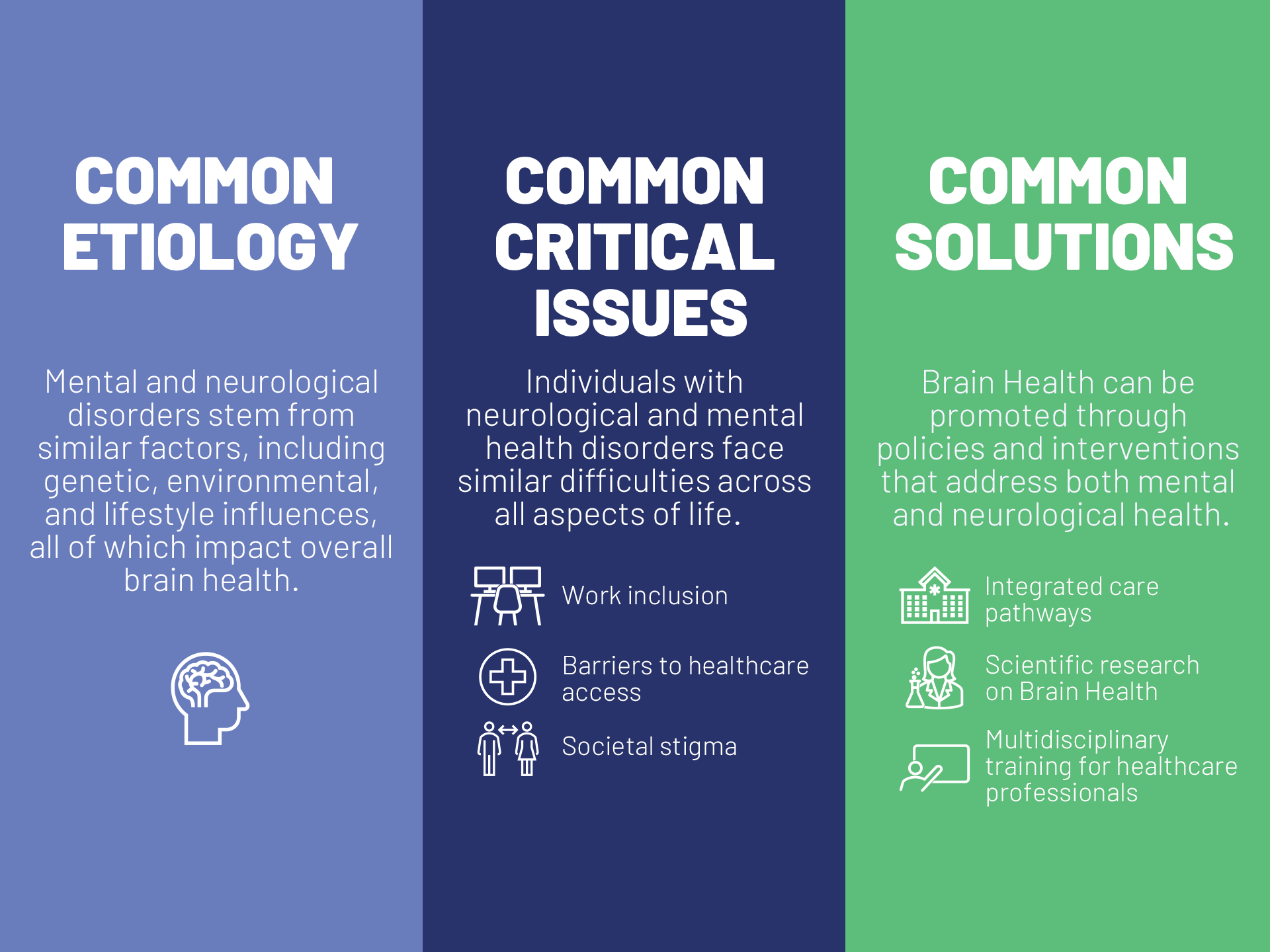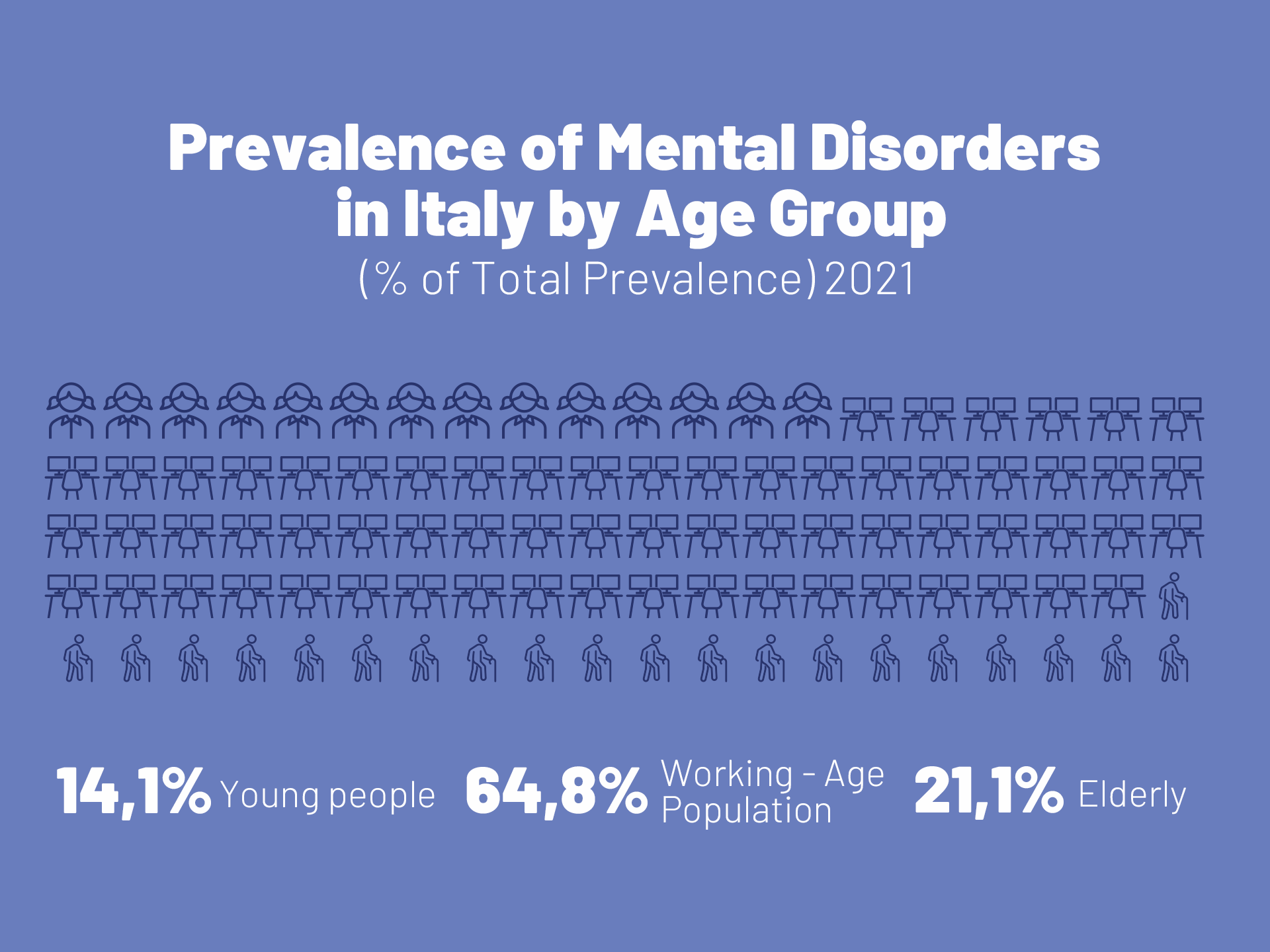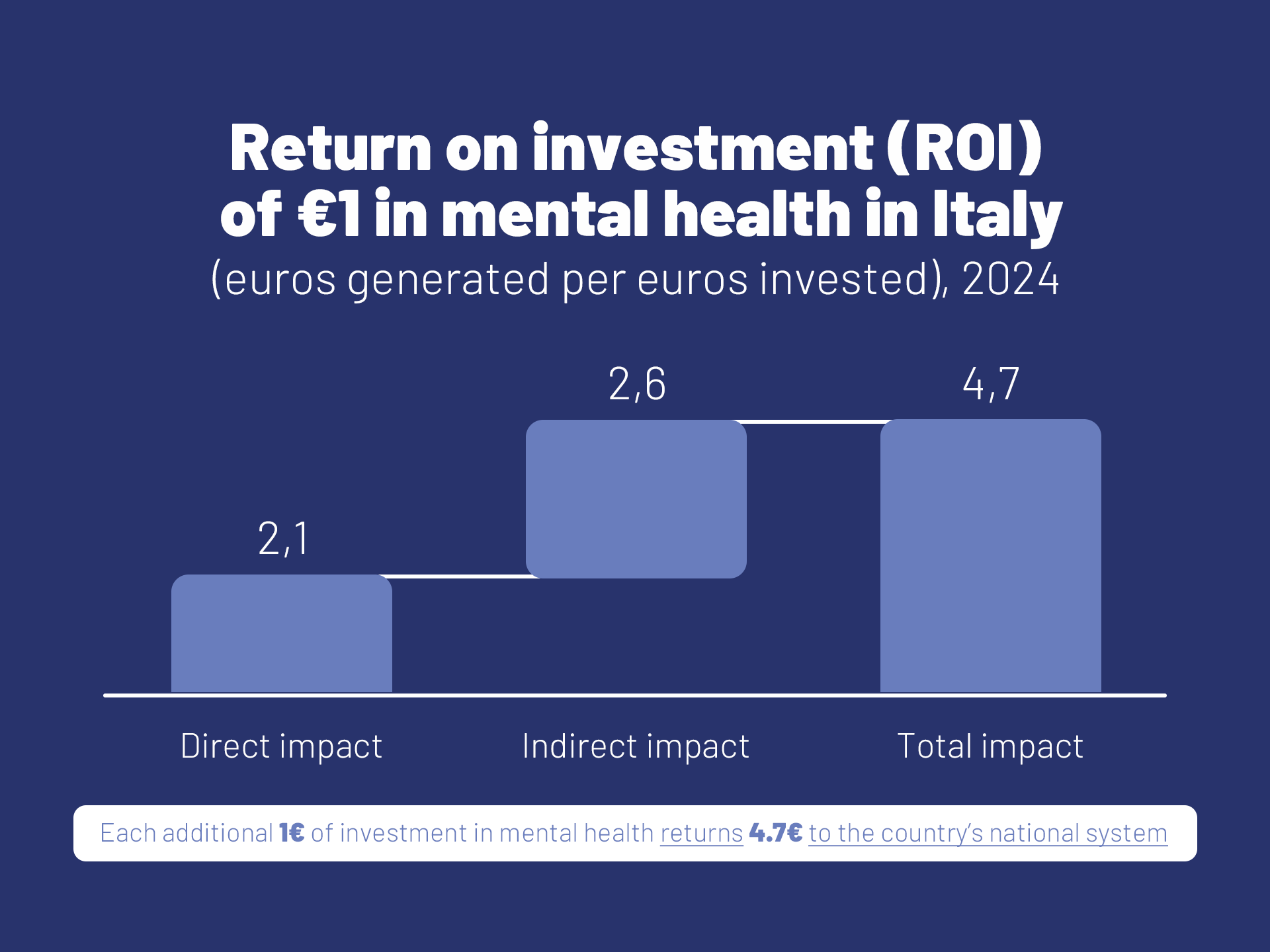Mental health: a strategic priority for a country's future
Share

Mental health is an indispensable pillar of individual and collective well-being and a key element in a country's socioeconomic growth.
The report "Mental Health as a Driver of Italy's Socioeconomic Growth," produced by Angelini Pharma in partnership with The European House - Ambrosetti as part of the initiative "Headway® - A New Roadmap in Brain Health: Focus Mental Health" , analyzes the Italian and European context highlighting concrete data and significant trends. In particular, the report explores the central role of mental health as an enabling factor for the country's socio-economic growth, with a focus on the impacts on labor.
The Importance of Brain Health: a holistic approach to mental health
The Report highlights how the Brain Health paradigm is assuming an increasingly central role in international health policies. Leading international organizations, starting with the WHO, are now
promoting an integrated approach that considers mental and neurological health as two inseparable dimensions, to be addressed jointly to ensure social and economic well-being.

Scientific evidence shows how different neurological and psychiatric conditions are interdependent: for example, some studies link neurological and mental health, demonstrating the existence of a bidirectional relationship between depression and epilepsy. The interconnection between mental and neurological health suggests the need for integrated treatment strategies, including prevention, early diagnosis, and individualized care pathways.

Investing in Brain Health means, in addition, taking a multidisciplinary approach to reducing the economic burden of brain diseases, which are a major cause of global disability. With this in mind, public health policies should include actions aimed at:
● Enhancing diagnostic and therapeutic capacity by improving the multidisciplinary training of health professionals and promoting an integrated approach to mental and neurological disorders.
● Promoting prevention strategies in workplaces and schools, raising awareness of psychosocial risk factors, as outlined in the WHO and ILO recommendations on mental health in
occupational settings.
● Developing work reintegration programs, creating an enabling environment and reducing the stigma that affects people with mental and neurological disorders.
Mental health and the labor market: data and trends in the Italian context
At the epidemiological level, mental disorders affect about one in six people in Italy, with anxiety and depression among the most prevalent conditions. Particularly critical is the situation of the working-age population, which accounts for 64.8 percent of total cases. Difficulty in accessing treatment, combined with stigma and job insecurity, generates a vicious circle between psychological distress and employment instability, with impacts also on the country's economic potential.

Workers with mental disorders often face discrimination, lower employment rates and difficulties in reintegration. The World Health Organization (WHO) identifies full work capacity as one of the key indicators of good mental health, highlighting the inextricable link between psychological well-being and economic performance. However, access to support services remains insufficient: there is a significant gap between the actual prevalence of mental disorders and the cases actually treated, driven by economic, cultural and organizational barriers that limit accessibility to treatment pathways.
Among the most critical issues highlighted by the Report is the mental health of young people, a particularly vulnerable group facing job uncertainties, economic pressures and high social expectations. According to OECD studies, psychological distress among young adults is on the rise, directly impacting their ability to enter and remain in the labor market. If not adequately addressed, this phenomenon risks creating a generation of precarious and unmotivated workers, with long-term negative consequences for productivity and social cohesion.
The economic impact of mental health: a challenge to be turned into an opportunity
Globally, the World Health Organization (WHO) highlights how the failure to support mental health has significant economic consequences, with an estimated loss of 12 billion workdays per year and a total cost of more than $1 trillion.
Currently, Italy allocates 3.4 percent of national health spending to mental health. An increase to 5 percent, in line with the EU average, would result in economic benefits of 10.4 billion euros, from reduced direct health, welfare and social spending and improved productivity. Headway's Italian Report estimates that every euro invested in mental health produces a return of 4.7 euros for the national economy.

Specifically, the report's economic simulations outline two possible investment scenarios:
● Scenario A: Achieving 10 percent of health care spending in mental health. An increase of 9.1 billion annually would generate direct savings of 29.6 billion and indirect benefits of 13.7 billion, with a total impact of 43.3 billion.
● Scenario B: Achieving 5 percent of health care spending in mental health. An additional investment of 2.2 billion euros annually would achieve total benefits of 10.4 billion euros.
These projections highlight how increasing investment in mental health is not only an ethical and social choice, but a real lever of economic growth. Addressing the problem in a structured way and with adequate resources would make it possible to improve the well-being of the population, reduce the burden on the health care system, and ensure greater competitiveness of the country in the long run.
Priorities for a course correction
The report stresses the urgency of a cross-cutting approach to mental health and Brain Health, involving the health sector, the world of work, the education system and social policies. Proposed priority actions include:
● Increasing mental health spending, aligning with at least the European average of 5 percent to ensure a positive impact on health, work and society.
● Integrating mental and neurological health into public and corporate policies by promoting structured psychological support programs for workers and students.
● Improved access to care services through a more equitable distribution of territorial resources and the strengthening of health care infrastructure.
● Development of prevention strategies, with integrated policies that recognize Brain Health as a national priority.
Italy now has an opportunity to align with the best European standards and promote a more equitable and sustainable model of development, in which psychological well-being is recognized as a key element for the country's growth. Allocating more resources to mental health, particularly among young people entering the world of work, means building a more resilient, inclusive and competitive society in which the talents and abilities of every individual can be fully valued.
 Angelini Industries
Angelini Industries




